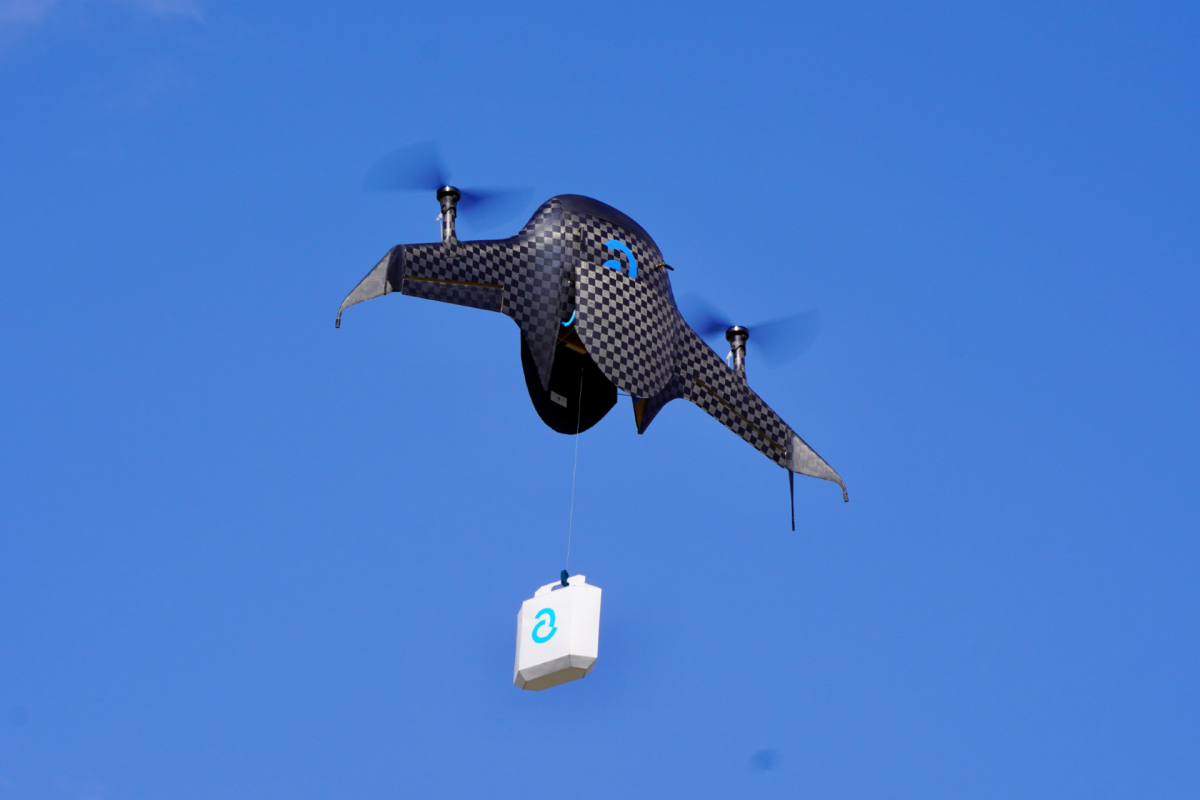Airbound, an Indian drone startup, has raised $8.65 million in seed funding as it begins a drone delivery pilot with a private hospital and moves closer to achieving one-cent deliveries using its ultra-light, blended-wing-body aircraft.
The round was led by Lachy Groom, co-founder of Physical Intelligence, with participation from Humba Ventures, existing investor Lightspeed Venture Partners, and senior leaders from Tesla, SpaceX, and Anduril.
Founded in 2020 by Naman Pushp, who was just 15 at the time, Airbound has developed a tail-sitter drone with a carbon fiber frame and a blended-wing-body design. Unlike typical quadcopters, Airbound’s drone, called the TRT, takes off vertically like a rocket and flies like a plane, cutting energy use and delivery costs significantly.
Pushp said the company aims to rethink energy efficiency in logistics. “Electric two-wheelers weigh 150 kilograms to deliver a 3-kilogram payload,” he told TechCrunch. “We’re cutting that weight 30 times and the energy cost 20 times.” The TRT drone targets 10 paise ($0.001) per kilometer in energy use.
The current version weighs 3.3 pounds, carries 2.2 pounds, and costs about $2,000 to produce. A second version, due mid-2026, will support a 6.6-pound payload while weighing just 2.6 pounds.
Airbound is currently producing one drone per day at its Bengaluru facility but plans to increase to 100 drones daily by 2027, targeting one million deliveries per day.
The company has started a pilot with Narayana Health in Bengaluru to deliver medical supplies and samples. It also plans to expand into food, quick commerce, and other last-mile sectors.
Related: Anduril Unveils ‘EagleEye’
Using lithium-ion batteries instead of lithium-polymer packs, Airbound says its drones last up to four times longer and are cheaper to maintain.
Pushp began Airbound during the COVID-19 lockdown, inspired by Zipline’s drone delivery model. He later received early funding from 1517 Fund, Brand Capital, and Emergent Ventures, followed by investment from Lightspeed.
With this new round, Airbound plans to scale manufacturing, expand operations, and prepare for large-scale adoption by 2026, with a goal to enter the U.S. market within three years.
“In autonomy, logistics is just a physics problem,” Pushp said. “If you have lower weight and higher efficiency than anyone else, you win.”






